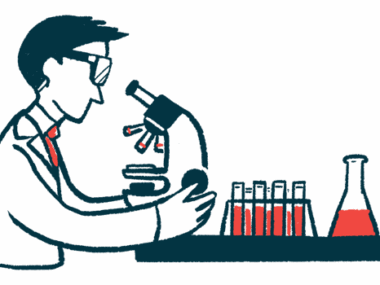Verastem’s VS-7375 oral therapy on FDA fast track for pancreatic cancer
Phase 1/2a trial to test VS-7375 for solid tumors with KRAS G12D mutation
Written by |

The experimental oral medication VS-7375 has been granted fast track designation for advanced pancreatic cancer in the U.S.
The Food and Drug Administration (FDA) gives this designation to help speed the development of experimental therapies that have the potential to fill unmet medical needs in the care of serious diseases.
Verastem Oncology is developing VS-7375 alongside Genfleet Therapeutics.
“Given the encouraging initial safety and efficacy results in China reported by our partner, GenFleet Therapeutics, … we are excited to be advancing VS-7375 in the U.S.,” said Dan Paterson, president and CEO of Verastem Oncology.
The KRAS protein plays a key role in regulating cell growth. Mutations in KRAS, especially the KRAS G12D mutation found in over a third of pancreatic cancers, can lead to abnormal signaling that drives uncontrolled cell division and tumor growth. While there are FDA-approved drugs for some KRAS mutations, there are currently no approved therapies that specifically target KRAS G12D.
VS-7375 blocks activity of mutated KRAS G12D protein
VS-7375, also known as GFH375, is an oral small molecule designed to stop cancer cell growth by blocking the activity of the mutated KRAS G12D protein. The fast track designation was granted to the therapy for the most common form of pancreatic cancer, adenocarcinoma of the pancreas (PDAC), in patients with a mutated KRAS G12D protein and whose tumor is locally advanced or has spread to other parts of the body. The designation covers VS-7375’s potential use as a first-line and/or second-line treatment.
Genfleet is currently sponsoring a Phase 1/2 clinical trial (NCT06500676) testing VS-7375 in people with pancreatic cancer and other types of solid tumors that harbor the KRAS G12D mutation. That study is actively recruiting participants at sites in China. Genfleet has also launched a Phase 2 study (NCT07026916) that will test the therapy in people with metastatic pancreatic cancer, though that study isn’t yet recruiting patients.
Early data from the Phase 1/2 trial indicated the most common side effects of VS-7375 include vomiting and diarrhea, and all seven evaluable PDAC patients had tumor shrinkage following treatment.
In the U.S., Verastem is conducting a Phase 1/2a trial to test VS-7375 in people with PDAC or other solid tumors carrying the KRAS G12D mutation. The first part of that study will test several different doses of the experimental therapy, then one dose will be selected for further safety and efficacy testing in a group of people with pancreatic cancer or lung cancer.
In addition to developing VS-7375 as a monotherapy (that is, a treatment used on its own), Verastem also plans to test VS-7375 in combination with Erbitux (cetuximab), which is approved in the U.S. for certain types of solid tumors including colorectal, and head and neck cancer.
“As we continue enrollment in our U.S. Phase 1/2a clinical trial, our goal is to accelerate the program’s development given the lack of FDA-approved, KRAS G12D-targeted treatments for people living with KRAS G12D cancers,” Paterson said.




